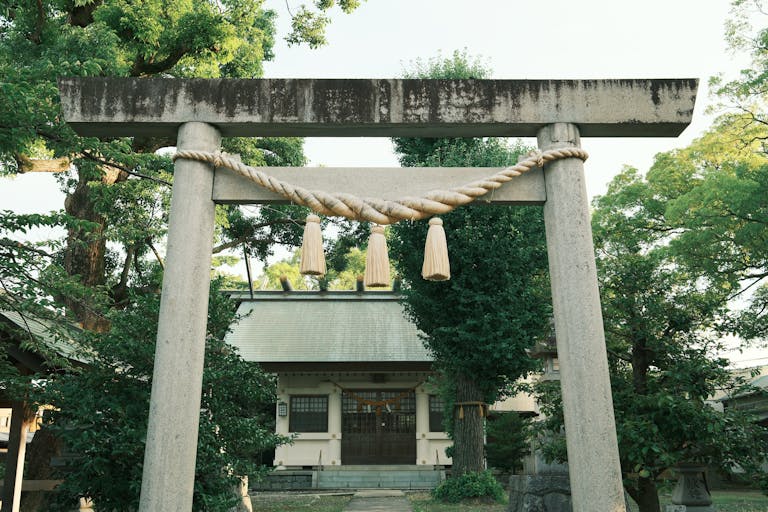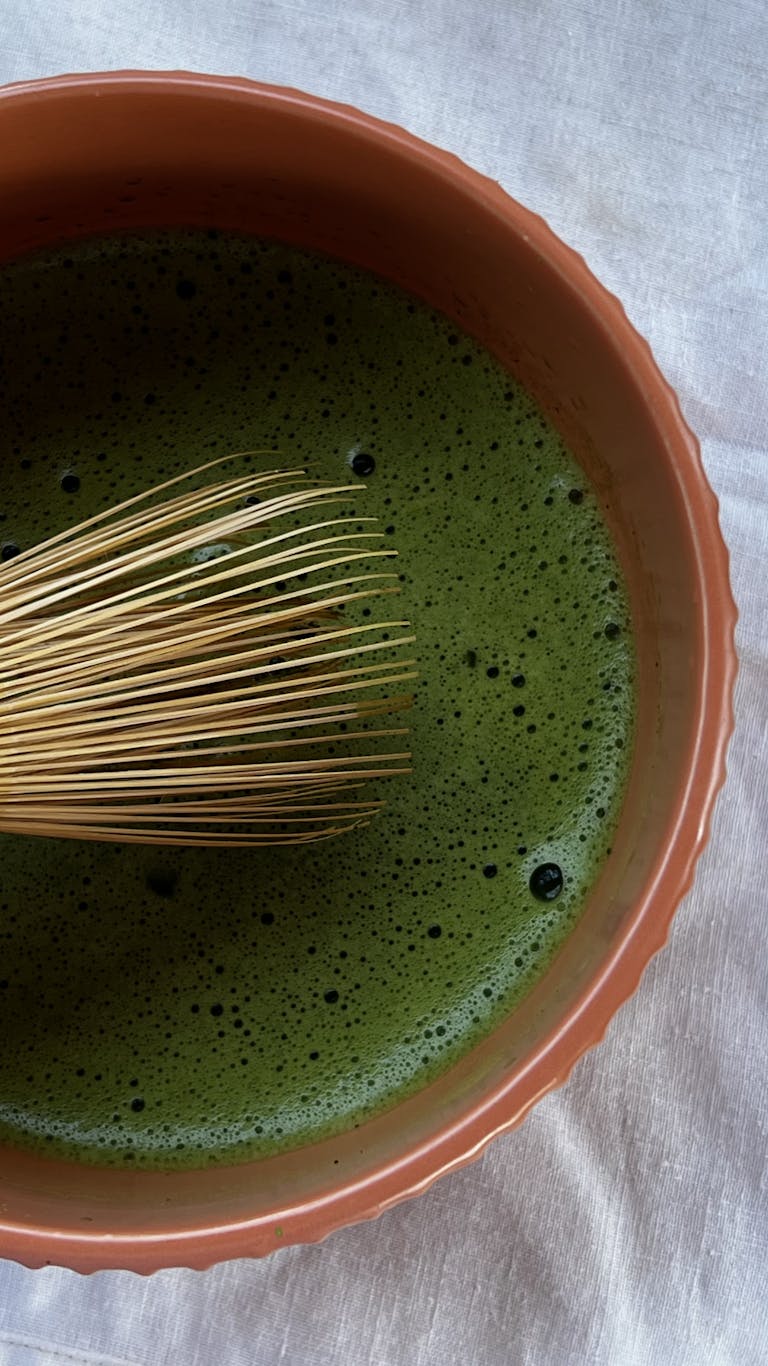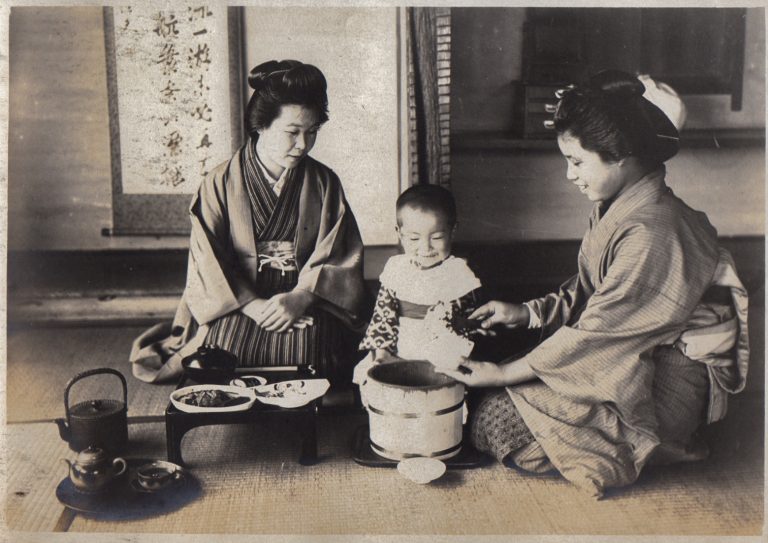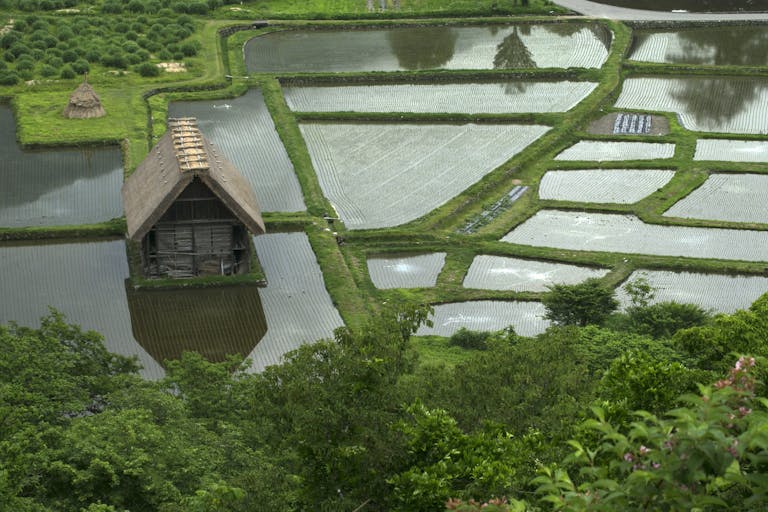The Real Meaning of Wabi Sabi: Not What You Think
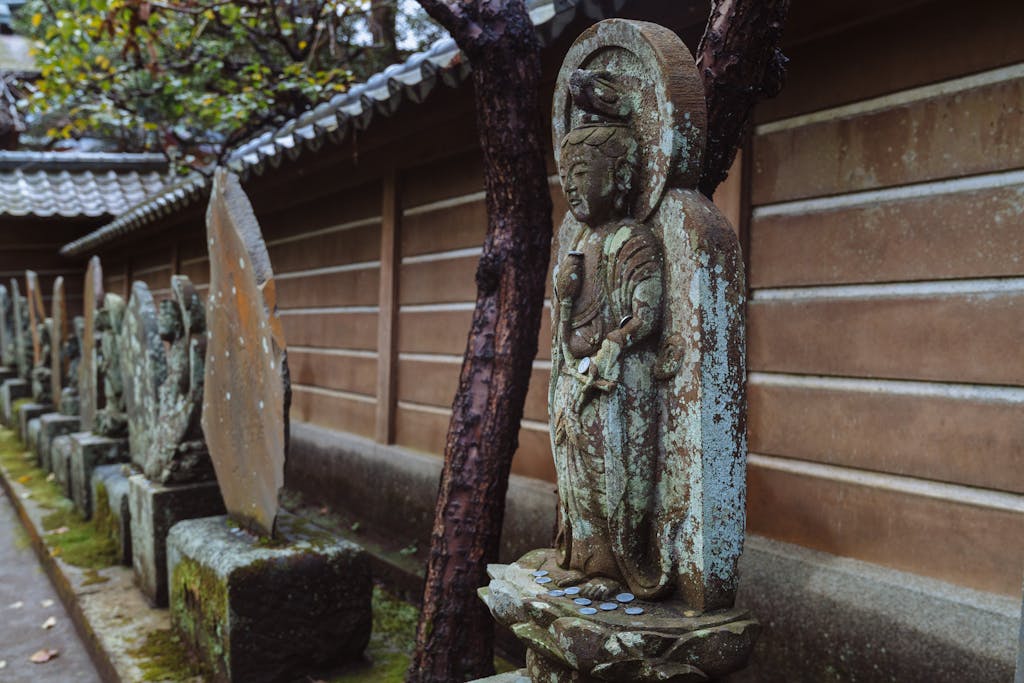
Introduction
Questions like “what is Wabi Sabi?” or “that’s just so Wabi Sabi, right?” came my way a few times from my American friends and familes during the last 20 years of living in America. Strangely, I had no idea what Wabi Sabi exactly meant, or I should say that I rather had no idea how to articulate what it meant, so I only had vague answers like “yeah, sure”. I had heard of the expression before; obviously, it’s a Japanese language and a concept. However, I still to this day have no memory of me ever actually using it during my 19 years growing up in Japan. Like, not once.
A quick Google search tells me that Wabi Sabi is “an awareness of the transient nature of earthly things and a corresponding pleasure in the things that bear the mark of this impermanence and imperfection.” Hmmmm. I knew that the generic definition in English translation did not quite capture the deep primal sense that I felt when I heard the word Wabi Sabi as a Japanese person. Could the word be so omnipresent in my DNA and subconscious that I don’t have a way to explain or express it? Just like a fish in an ocean wouldn’t know how to explain what water is? Okay, in that case, I now have a mission at hand to go discover the true meaning of Wabi Sabi, and articulate it clearly, in English (my second language, mind you) from the perspective of a Japanese woman.
So let’s get rambling.
What is Wabi Sabi?
Wabi Sabi is one of Japanese aesthetic values born from the influence of Zen Buddhism which believes that enlightenment is reached when one realizes the Buddha nature within, which is the authentic state of all beings. Therefore, Wabi Sabi philosophy is deeply inspired by Nature and its rhythm. Wabi Sabi can be written in Japanese as 侘び寂び or 侘寂. It is actually two separate concepts: Wabi (侘び) and Sabi (寂び).
The Origin of Wabi
The concept of Wabi originates from a lineage of Japanese tea ceremony as I wrote in this post. A tea master Sen no Rikyū completed the creation of practice Wabi Cha around 1600, which is the origin of the Japanese way of tea and it remains important in Japanese culture to this day. Rikyū’s Wabi Cha focused on humility, simplicity, and attunement to the natural world. Wabi comes from a word wabishii (侘しい) which means dreary, lonely, and poor; however Rikyū used the word Wabi to represent an aesthetic value of simplicity and completeness. For him, Wabi expressed a life force very lively beneath a seemingly quiet and tranquil scene. For example, a rich soil and all its microscopic residents having endured a long hard winter and all getting ready to sprout life explosively underneath the snow slowly melting. I personally love this meaning of Wabi very much. Considering this, Wabi can be defined as, “beauty found in the simple, unadorned, and authentic.” Wabi is an effortless essentialism in which every being and everything are whole in their authentic forms. We are all enough as we authentically are.
The Origin of Sabi
Sabi comes from a word sabishii (寂しい) which expresses lonely, solitary, and lonesome state of a space. The letter Sabi( 寂) also reads as jaku which is one of four virtues of tea taught by Sen no Rikyū, meaning tranquility and quietness. There’s yet another Sabi (錆び) meaning rust, patina, and aging process in Japanese language. Over time, all these definitions of Sabi were combined and the word came to express an aesthetic value of aging, passing of time and layers of characters that come with them. It is like your beloved leather boots that have molded to your feet so comfortably and getting softer and having more character as you wear more and take care of them. As a famed classic Japanese novelist Tanizaki Jun’ichiro writes in his book In Praise of Shadows,
“We do not dislike everything that shines, but we do prefer a pensive lustre to a shallow brilliance, a murky light that, whether in a stone or an artefact, bespeaks a sheen of antiquity … We do love things that bear the marks of grime, soot, and weather, and we love the colours and the sheen that call to mind the past that made them.”
Sabi is an honoring of seasons changing, years passing, and cycles of nature that sometimes can be felt as a bit melancholy; however with the passage of time, everything and every being evolves deeper layers of complexity and character. It applies not only to the physical states in the external world, but also to the story and history behind them. Sabi can be defined as “deepening of quality that happens with natural passing of time.” It reminds us to not resist the aging process, but rather accept and flow with it as it’s only natural and there’s much character, depth, and beauty to be had as a result of it.
Wabi Sabi Together
Wabi and Sabi have always been two separate aesthetic concepts in Japan; Japanese people seem to naturally embody them according to their own sense of beauty. Wabi Sabi came together in the last 100 to 150 years or so, as written in The Book of Tea by Okakura Tenshin to introduce the understanding of deep Japanese psychology and aesthetics to the Western world. No wonder I could not articulate the definition well as a Japanese person; afterall, Wabi Sabi is deeply subjective with great variation from person to person. Wabi is the state of one’s mind and heart to value authenticity of everything and everyone that comes with wholeness. Sabi deepens the beauty of that authentic work in progress with time as the story and history are woven each moment.
Meaning Lost in Translation
Now, I need to talk about vocabulary often used in the English translation of Wabi Sabi. Personally, I would love to stop the use of the words like perfection, imperfection, impermanent, and incomplete altogether when it comes to philosophy of Wabi Sabi as it’s often used to describe the concept in English. This common translation of Wabi Sabi is, in my perspective, quite literally in contrast to the true meaning and philosophy of Wabi Sabi. The whole point is to accept that everything is what is at this moment in its authentic form. Neither perfect nor imperfect. There’s an immeasurable beauty in authenticity that nothing has to be added. Life has an eternal cyclical nature; this is deeply rooted in Buddhist teachings of Rin ne tensei (輪廻転生) or samsara. With that understanding, the word impermanence feels a little bit off for me when it comes to the translation of Wabi Sabi. Each moment is rather ephemeral just as our children grow up so quickly moving through many different stages of life, or a beautiful pink sunset displayed in the sky lasts only a matter of few minutes. Yet, the life is eternal. Our life’s journey is about seeking and discovering our true authentic nature, loving ourselves, and being aware of the beauty that each ephemeral moment brings as we all travel further and deepen our stories and characters, again and again, life after life.
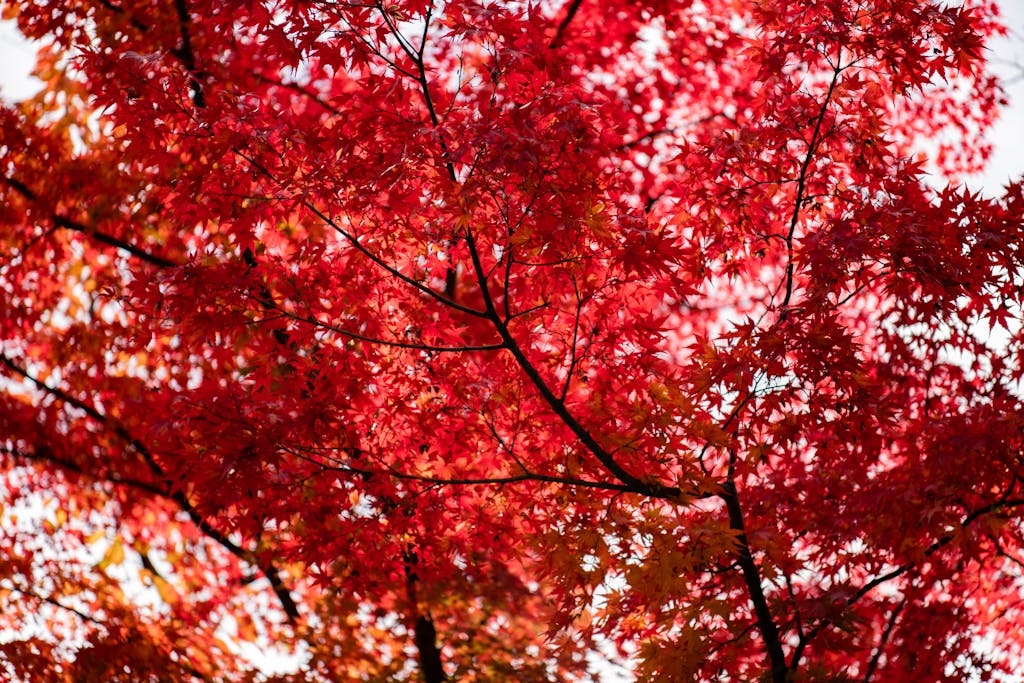
One More Word: Yūgen
Yūgen means “a sense of profound beauty that is beyond words and what is visible, often provoking a feeling of mystery, divine, awe and connection to all life.” The word first appeared around 1180 when a Japanese poet Fujiwara no Shunzei used it to critique haiku and other Japanese poems. When one stands in front of 5000 year-old Jōmon Sugi (cedar tree), and imagines that ancient tree was once a tiny seed thousands of years ago, he or she can have the sense of awe. It is a feeling of connection to the mystery of all life across time and space that is beyond one’s cognitive understanding. It is highly subjective as everyone feels the connection to the Universe and All life in their own authentic and individual way. For me, watching my children happily play in the nearby forest makes me feel a deep sense of connection to the mystery of life, Yūgen, as I often wonder if I didn’t make certain choices in my life, these beautiful people in my life wouldn’t be here stomping all over the forest path, underneath which lies thousands of years of natural history and story that we don’t know about.
Yūgen is considered one of seven principles to understand Wabi Sabi in Zen buddhism. However, I personally feel that it’s the other way around; Wabi Sabi is our daily gateway to Yūgen, the sense of profound connection to the universe and beauty beyond words.
Practical Application
So how is this Japanese philosophy relevant to your life today? While Wabi Sabi Yūgen might seem like an ancient philosophical concept, its wisdom offers a powerful antidote to modern challenges. In a world of constant digital noise and endless pursuit of perfection and external validation, these principles can help us rediscover our authentic selves and find inner peace in life’s natural rhythms. With the curiosity to discover our authentic nature, we open the space in our minds and hearts to fully be present with precious, divine, and mysterious moments of life. Here are some steps to begin this journey of transformation.
1. Simplify and beautify your living space
This is NOT a suggestion to become a minimalist and follow some external standards set by someone else. That would be exhausting. What is simple and beautiful to YOU? Go through your belongings one room at a time deciding if something is absolutely essential to your authentic life or not. Donate or gift what you decide to let go. Now beautify your space with what gives you joy and a sense of inner peace.
2. Connect with Nature daily
Step outside to let yourself feel the breeze and the sunlight. Even if you live in the big city, there’s got to be one tree or wildflowers you can make friends with. Take off your shoes and feel the earth. Pay attention to the phase of the moon, the season you’re in, and everything else you can observe. We humans are part of Nature, not separate from her. Participate accordingly.
3. Get out of your head, and more into your heart
I know this is no easy task, and I also have challenges with this from time to time. I personally like to practice short bits of meditative quiet moments throughout the day, stopping whatever I’m doing and putting my hand on my heart, literally feeling into what my heart is feeling. Some difficult emotions? It’s alright. You just proved that you are also a human. Stay with them. Cultivate a loving relationship with yourself and be curious about what you can discover about those emotions and what lies beneath them. Remember? Wabi is all about discovering our own authentic nature.
4. Know that you are a glorious work in progress
There’s no failure; there’s only learning. You are evolving and deepening every moment of your life. Your character, body, knowledge, and wisdom are all aging beautifully so that every moment your stories are woven to create this masterpiece fabric called your life.
5. Practice gratitude often
After reading many self-books for years, I still need a simple reminder to practice gratitude. So here it is for you and me. Whether you journal or not daily, I find it helpful to reflect at the end or the beginning of the day and that’s when I usually list things that I feel grateful for. Gratitude is literally an antidote to many toxic feelings that we could encounter in this fast-paced modern life. And it’s free!
Wrapping Up
As a summary:
Wabi is “beauty found in the simple, unadorned, and authentic.”
Sabi is “deepening of quality that happens with natural passing of time.”
Yūgen is “a sense of profound beauty that is beyond words and what is visible, often provoking a feeling of mystery, divine, awe and connection to all life.”
This rambling has been quite transformative for me in many ways. On this journey to discover Wabi Sabi, I actually discovered that ancestral remembrance is a powerful thing. Even after spending my entire adult life in a different country outside of my own, the centuries of cultural ways passed down from my ancestors are still alive in my cells. I feel so relieved that there are no strict rules to follow and there are no pass or fail tests. All I need to do is to discover my true authentic nature and deepen that every day, as I notice the beautiful precious moments of life.
This is a transformational perspective change for me, both on a conscious and subconscious level, knowing that I already have this wisdom within myself. I hope that you were also able to find or remember some treasures or tools from this post that you can stuff in your backpack on your life journey.
Fellow rambler, you are enough. You are complete. There’s a very special sparkle about you, just the way you authentically are.
Thank you for sticking with me on this ramble. And I will see you all in our next ramble. Until then, じゃ、お元気で!(take care friends!)
P.S. Please leave your thoughts, opinions, requests or comments below. I would love to hear from you! Also, we can keep in touch through my perodic newsletter with Japanese rambles, stories, recipes, and more! Sign up from the homepage to join the rambling journey to Japan.

